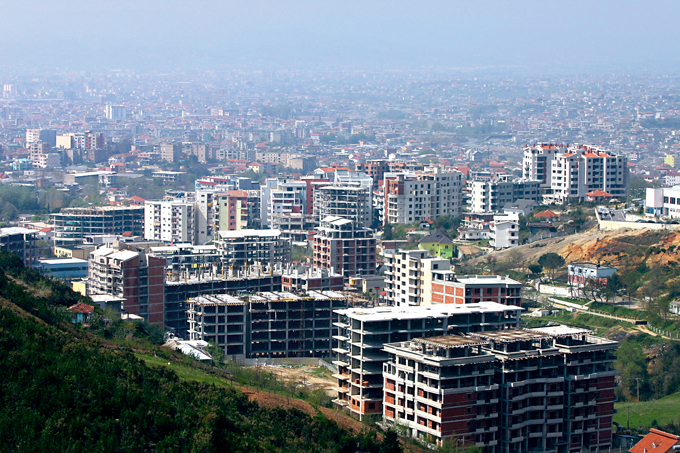 While Albania continues its saga of economic and legal reforms and prepares to join the European Union, issues around property rights remain one of the major barriers that impede the integrated economic development of the country. Despite periodic mentions in the EC Progress Reports, the situation seems to be far from resolved. A different monitoring approach, based on a wider inclusion of stakeholders and civil society, could raise the effectiveness of institutional initiatives, argues Arlind Rama.
While Albania continues its saga of economic and legal reforms and prepares to join the European Union, issues around property rights remain one of the major barriers that impede the integrated economic development of the country. Despite periodic mentions in the EC Progress Reports, the situation seems to be far from resolved. A different monitoring approach, based on a wider inclusion of stakeholders and civil society, could raise the effectiveness of institutional initiatives, argues Arlind Rama.

Today, the real estate market in Albania continues to face various challenges which can be traced back to a dysfunctional administration system of immovable property rights. Many unresolved cases of land property ownership are still waiting to be processed by the Albanian judicial authorities, while the number of cases addressed to the European Court of Human Rights is increasing rapidly.
Why is this issue of such major consequence for Albania? For starters, registered properties which are properly titled, help to project the country’s long-term economic development strategy. This, in turn, helps the improvement of urban planning on a national scale, and facilitates the development of infrastructure. In addition, it provides the necessary ground for implementing state reforms which eventually could boost the real estate sector and create new horizons for foreign investors with an interest in Albania and the Balkans. Albania’s chaotic immovable property market and stakeholders’ concerns about property rights have underscored the importance of effective reforms and responsible state agencies. In order to be reliable and efficient, the system of property administration should serve as a guarantee for property ownership and tenure security. This will enhance the stability of the real estate sector, by reducing land disputes, facilitating property transactions and supporting good governance.
So far, economic challenges stemming from uncertain property rights are considerable. Illegally constructed buildings, yet not-legalized, undocumented or unregistered immovable properties remain outside of the formal property market because of their unclear legal status. This situation does not allow de-facto owners to use these properties as collateral to access financing, or to sell them at the real market value. This limits the contribution of the property market to investment and economic growth. Moreover, transactions with these properties take place informally and complicate the work of state authorities. Transaction costs and uncertainties as well as property conflicts concerning ownership, discourage investments in these immovable properties. As shown in the results of EBRD Business Environment and Enterprise Performance Survey 2013 (BEEPS), access to land is increasingly affecting the business environment, with some 44 percent of respondent firms noting it as a problem, which is considerably higher compared to 26 percent of 2005 report. In an attempt to tackle this, the legalization process was treated with priority by the authorities. However, electoral pressures have made successful land administration reforms difficult.
What should be done?
In order to achieve an efficient and effective immovable property administration system it is quite evident that alternative solutions should be part of the ongoing reforms. From an administrative point of view, the creation of a single agency dealing with all kinds of property issues under unified databases could be the beginning. A different approach to monitoring reform implementation, based on a wider inclusion of stakeholders and civil society could also raise the effectiveness of the institutional initiatives taken. An important part of this process could also be the formation of joint committees of government officials, international experts on immovable property reforms and civil society professionals, which can monitor the implementation of reforms on an ongoing basis.
Another idea could be the creation of a public discussion platform on property rights issues, in order to increase transparency in the exchange of information, to share experiences and create stable networks between institutional actors, academics and civil society. Public debate needs to be considered as a medium of support for the development and improvement of co-ordination between actors in the process of solving crucial property issues.
Once the digitalization of all data related to land registrars is properly accomplished, an online based services system could also offer easier access to digital property records for the public and could facilitate procedures of property registration.
A final idea would be to design an organized use of the national land resources. A property system of taxation should be put in place, clearly defining Albania’s development objectives and providing a stable, predictable source of revenue that is transparent in the way that it is calculated and collected.
In consideration of the political and economic long-term aspirations of the country, it seems that the sooner a final solution for property rights concerns is found, the faster the pace of Albania’s progress and development on the route of European integration will be.
Note: This article gives the views of the authors, and not the position of LSEE Research on SEE, nor of the London School of Economics.
_______________________
Arlind Rama is a Chevening Scholar of the Foreign and Commonwealth Office. He engaged in economic analysis at the Institute of Economic and Banking Studies at the Bank of Albania and is a young scholar of the Institute for New Economic Thinking. Prior to joining the Bank, he has lectured “Financial Management” in the University of Tirana where he is also pursuing his doctoral studies. Arlind is a founding member of the Institute for Public Policy and Good Governance.


